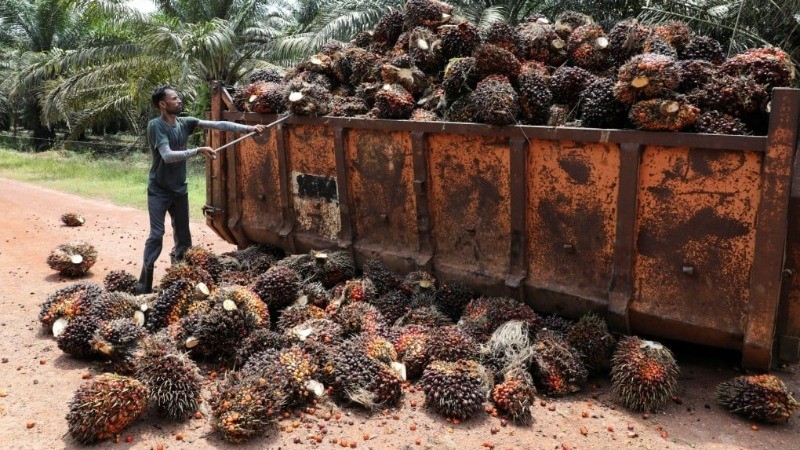
Amid increasing scrutiny from Western markets over environmental concerns, Malaysia is looking to expand its palm oil trade with India and other Asian and African nations. The Malaysian government, through its Plantations Ministry and the Malaysian Palm Oil Council (MPOC), emphasizes that palm oil cultivation has significantly improved the livelihoods of small farmers while remaining committed to preserving the country’s biodiversity.
Johari Bin Abdul Ghani, Malaysia’s Minister for Plantation and Commodities, acknowledged the challenges facing the edible oil sector, including fluctuating market dynamics, evolving trade policies, and heightened focus on sustainability practices. “These challenges are not just domestic; they are global and impact every player in the oils and fats industry,” he said. He added that the Malaysian palm oil sector is dedicated to turning these challenges into opportunities by adopting sustainable practices, investing in innovative technologies, and forming strategic partnerships to meet global standards.
With the European Union planning to enforce the European Union Deforestation Regulation (EUDR) by December 30, 2025, Malaysia is prioritizing sustainable farming methods. Government data reveals a troubling decline in the populations of key species: the Malayan tiger has plummeted from approximately 3,000 in the 1900s to fewer than 150 in 2020, while the elephant population, estimated at 2,000 based on 2008 data, is reportedly increasing. Orangutan numbers, which were over 100,000 in the 1900s, have stabilized at around 11,000 to 15,000 in recent years.
Carl Bek-Nielsen, Chairman of the MPOC, highlighted a common misconception that sustainability is solely a Western concern. “It is essential for all countries. Today's youth want to ensure they are doing things the right way,” he stated. He emphasized that economic viability is crucial for sustainability, explaining that businesses must generate profits to create jobs and build infrastructure. Bek-Nielsen also noted the importance of adhering to International Labour Organisation standards in oil palm cultivation to ensure sustainable production.
Globally, oil palm accounts for just 0.5% of agricultural land yet produces 35% of the world's edible oils and fats, with Indonesia, Malaysia, and Thailand responsible for 87% of global palm oil production. Bek-Nielsen pointed out that while countries like India are net importers of edible oils, only five nations are significant exporters. He compared Malaysia and Indonesia to "the ‘Mike Tysons’ of this sector," advocating for a level playing field in trade.
He criticized the EU's approach, stating that one-third of its budget goes to subsidizing farmers and that the EUDR is a poorly conceived regulation. “If implemented, Europe will face challenges not only in acquiring palm oil but also cocoa and coffee,” he warned.
Belvinder Sron, CEO of the MPOC, acknowledged the environmental pressures resulting from sustainability initiatives, noting that deforestation has ceased. “If you clear forests, you will struggle to sell oils to certain markets,” she said, highlighting that palm oil cultivation has lifted hundreds of thousands of Malaysian families out of poverty. Sron reiterated that Malaysia is committed to preserving 50% of its land as forest, with no further expansion of palm oil cultivation planned. The focus is now on improving yield, targeting an increase from the current average of 3.2 tonnes per hectare to as much as 5 tonnes.
Sron also expressed that India’s push for increased domestic production is not a threat to Malaysia. “We believe India and Malaysia can collaborate to ensure food security. India’s oil palm mission benefits the majority of its population,” she added. The MPOC aims to counter negative campaigns against Malaysian palm oil with factual information, asserting its commitment to sustainable practices while maintaining that 54% of Malaysia’s land remains forested and only 17% is dedicated to palm oil cultivation.